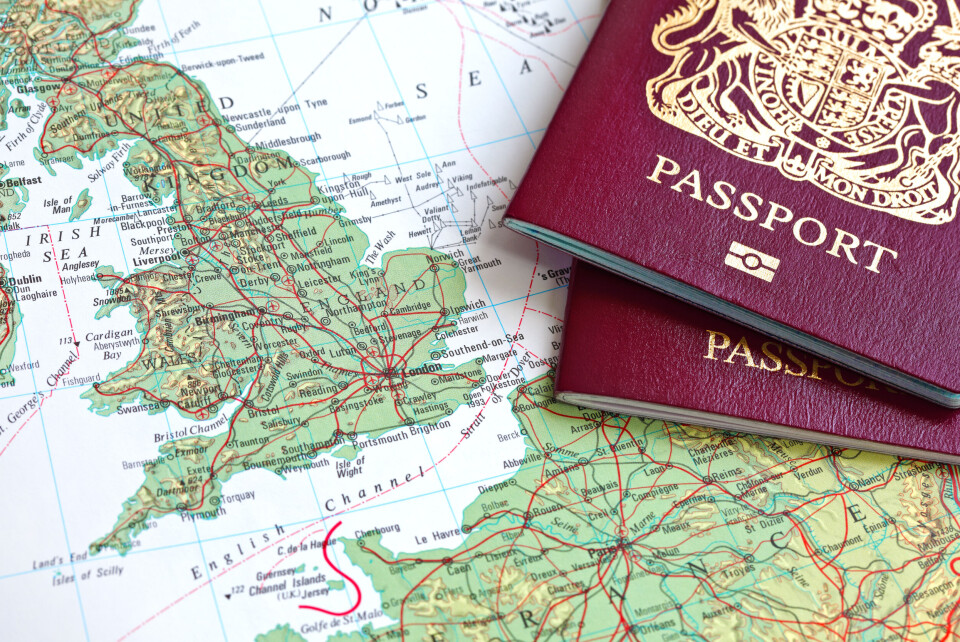-
What you need to know about French civic tests for residency and citizenship
Cultural sessions now offered to newcomers undergoing the Contrat d’intégration républicaine (CIR) process via the Ofii immigration service
-
Five-year WA card holders in France reminded to apply for renewal in good time
If you obtained your card in 2021, you should apply to renew it two months before the expiry date
-
Can you offer rentals in France when staying on visitor visa?
There are different thresholds for rentals before they are deemed as ‘professional income’
Can you start a French visa while already in the country?
Reader asks if 90 visa-free days allowed in France can be added in advance to their six-month visa, allowing them effectively up to nine months in the country

Reader Question: We are British citizens who will be applying for a six-month visa but plan to go to our French second home before it starts to make the most of our 90-day visa-free allowance.
In that case, do we have to come back to the UK and then return to France after the start of the 180 day visa or can we simply stay in France?
If you are applying for a temporary long-stay visa (VLS-T) for six months, you are allowed to use the 90-day visa-free allowance included on your British passport before your visa begins.
In most cases, you would normally have to come back to the UK before your visa started because it is necessary to go to the visa centre in person in order to submit your application documents.
However, given that you can apply for a visa up to 90 days prior to your planned departure date, it may in some cases be possible to obtain a visa as much as two months before it actually begins.
In this case, you may already be spending time in France on your 90-day allowance when the visa start date arrives. Time in France under a visa is not counted as part of the 90-day rule. It is considered part of a ‘long-stay’ as opposed to a short stay, which is visa-free for British citizens.
The French visa service website, France-Visas, states that: “If you were granted a long-stay visa, the border police will only ask to see your passport containing the visa. It must have a stamp showing the date of entry into France.”
This suggests that a person must exit and re-enter France in order to have their visa stamped by border police, instead of simply tagging their 90 days onto the visa period without ever leaving the country.
However, the “stamp” could also potentially refer simply to the passport stamp every British person without a WA card is given when entering France, and may not relate to the visa at all. In this case, a stamp dating from before the visa’s start date may well be acceptable.
The Connexion contacted the French consulate and Direction générale de la police nationale (DGPN), whose responsibilities include the border police, for clarification on this point.
The former declined to comment but the latter stated: “Following an authorised short-stay [in France, a person] can carry out a long stay without having to leave the country, if they have a long-stay visa allowing them to stay until its expiration date.
“At the end of these two stays, while leaving the territory, they must explain to the border control authorities that they have carried out a short stay followed by a long stay by presenting relevant proof to explain the totality of their stay in France.”
A spokesperson added that this "proof" must include the documents the person used when entering the country, namely their stamped passport containing the visa. You may also wish to retain plane boarding passes or booking confirmations, evidence of the purpose of your stay etc., but the spokesperson did not say that this was necessary.
Staying for 90 days at the end of your visa
The DGPN told The Connexion that: “On the expiry of a long-stay visa, a person can carry out a short stay of up to 90 days in any 180 day period without having to leave the country where they had their long stay.
“At the end of these two stays, while leaving the country, they must explain to the border authorities that they have completed a short stay following their long stay and also present relevant evidence to prove the legitimacy of their whole stay in France.”
It should be noted that if you are moving to France permanently with a VLS-TS (visa valant titre de séjour) you will need to validate it online, but this is not necessary if you only have a ‘temporary’ visa for a fixed period.
Bear in mind also, if combining the 90-day short-stay rule with a period under a temporary long-stay visa, that you may be assumed to fall under French tax residency rules if you spend longer in France in a calendar year than anywhere else.
Related articles
How do French long-stay visas work with the 90-day allowance?
Brexit updates: residency cards, passport stamps, UK-France deliveries
How do I apply for a French visa if I live in Northern Ireland?
























